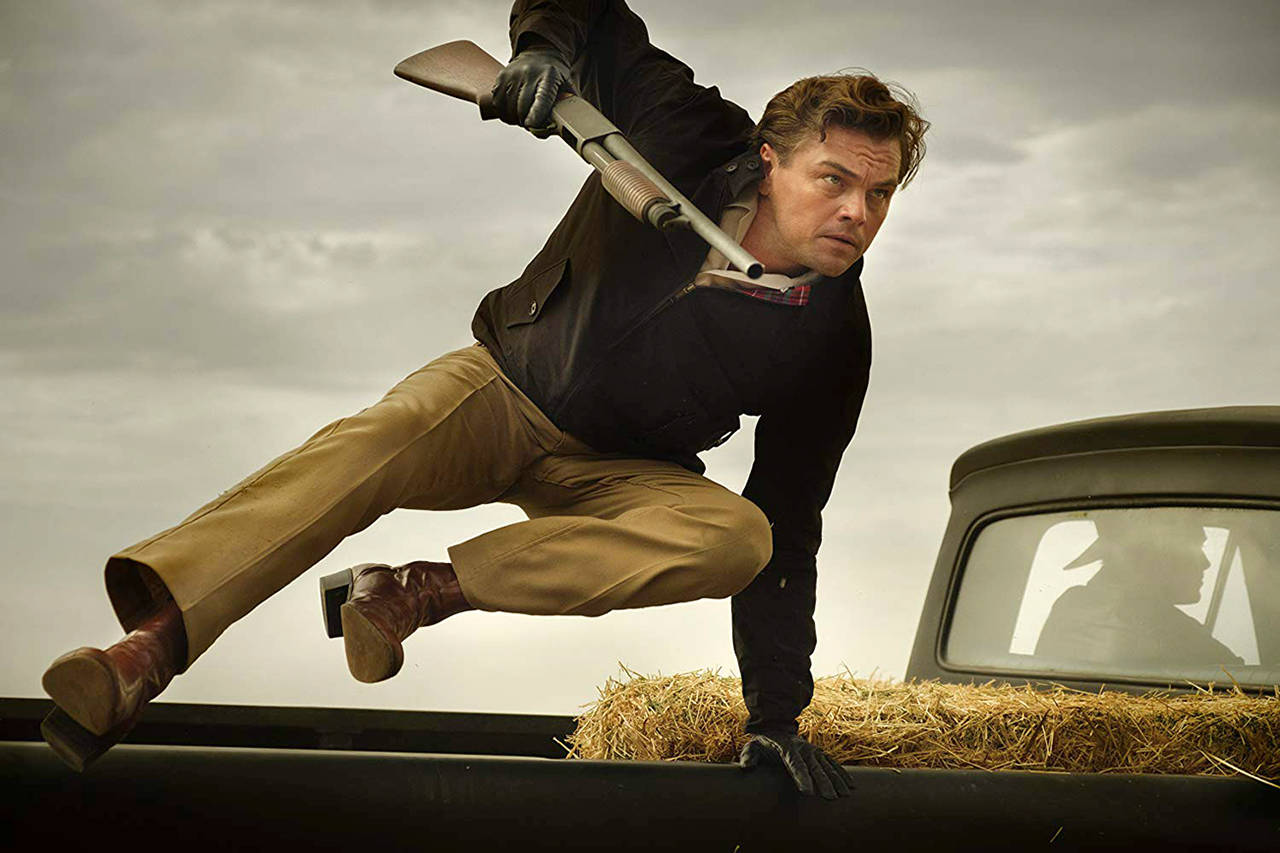Films by Quentin Tarantino can hardly be judged entirely after a single viewing. “Pulp Fiction” is better every time I watch it; “Inglourious Basterds” now seems like his second-best film, after some time to marinate on it; and “Reservoir Dogs” feels more and more like a fledgling director’s first solid film than a masterpiece as the years go on. At least, that’s my opinion.
Likewise, “Once Upon a Time in Hollywood” might be better appreciated after more than one viewing. Fresh out of seeing it this past weekend, I’m both in love with it but also not sure if I would ever call it one of his best movies. Initially, I was a bit cold to how it all wrapped up; but going over the strange, meandering plot littered with quirky flashbacks and dark-humored hilarity, I continue to warm up to it even as I write this.
If you’ve seen any of the legendary director’s other films, you have somewhat of an idea what you are in for. But even with his trademark style and dialogue, “Once Upon a Time” is a film apart from all the others. Simultaneously it is a fine character-driven buddy comedy and an ode to the Golden Age of Hollywood, spaghetti Westerns, pulp cinema and film lovers.
What the film gets absolutely right are the script, an incredible soundtrack, and top-notch performances. Actor Rick Dalton (Leonardo DiCaprio) and his stuntman, Cliff Booth (Brad Pitt), are two individuals who might absolutely hate each other in any other movie, but here are unconditional friends who genuinely enjoy each other’s company. The chemistry between DiCaprio and Pitt is so phenomenally good that it would surprise me if both weren’t up for Oscar nods from this. Both are genuinely likable, but have layers of questionable characteristics and less than admirable traits.
The supporting cast is fantastic too, with Al Pacino, Kurt Russell and Margot Robbie (as Sharon Tate) being excellent highlights; but the list of other respectable actors delivering great work here would be too long to go into.
Some critics are taking issue with Robbie’s lack of substantial screen time and dialogue; but her character is portrayed here as something symbolic within the film rather than a significant player. Robbie’s portrayal of Tate is more of a beacon to symbolize her era of Hollywood, and as a rising juxtaposition to Rick Dalton’s dwindling career. It’s a fascinating use of a character — a literary device that Tarantino has somehow managed to translate on film perfectly.
And while Tarantino insists that the film is not about Sharon Tate or her horrific fate at the hands of the Manson family, the use of the Mansons and the build-up around them makes them seem like more prominent players than they are. This seems hugely at odds with the film’s main storyline involving Dalton and Cliff. Members of the Manson family are introduced and then dropped; Charles makes a creepy appearance that is pretty pointless in retrospect; and an entire sequence that leads Cliff to the Mansons’ hideout seems far more drawn-out than it needed to be.
And if there is one other flaw, it’s that the movie could easily have been cut by 15 or even 20 minutes. There is no reason this needed to last two hours and 40 minutes. I was ready for this thing to wrap up around the two-hour mark. I can think of several scenes that could be cut, but I look forward to re-examining them with another viewing.
This one isn’t for everybody. But lovers of historical cinema, fans of Tarantino and the actors, and those looking for something entertaining and different will probably find it very enjoyable — just skip the soda.
• • •
“Once Upon a Time in Hollywood” is currently playing at Ocean Shores Cinemas, 631 Point Brown Ave. in Ocean Shores.
George Haerle holds a bachelor’s degree in creative writing for media and lives in Cosmopolis.


